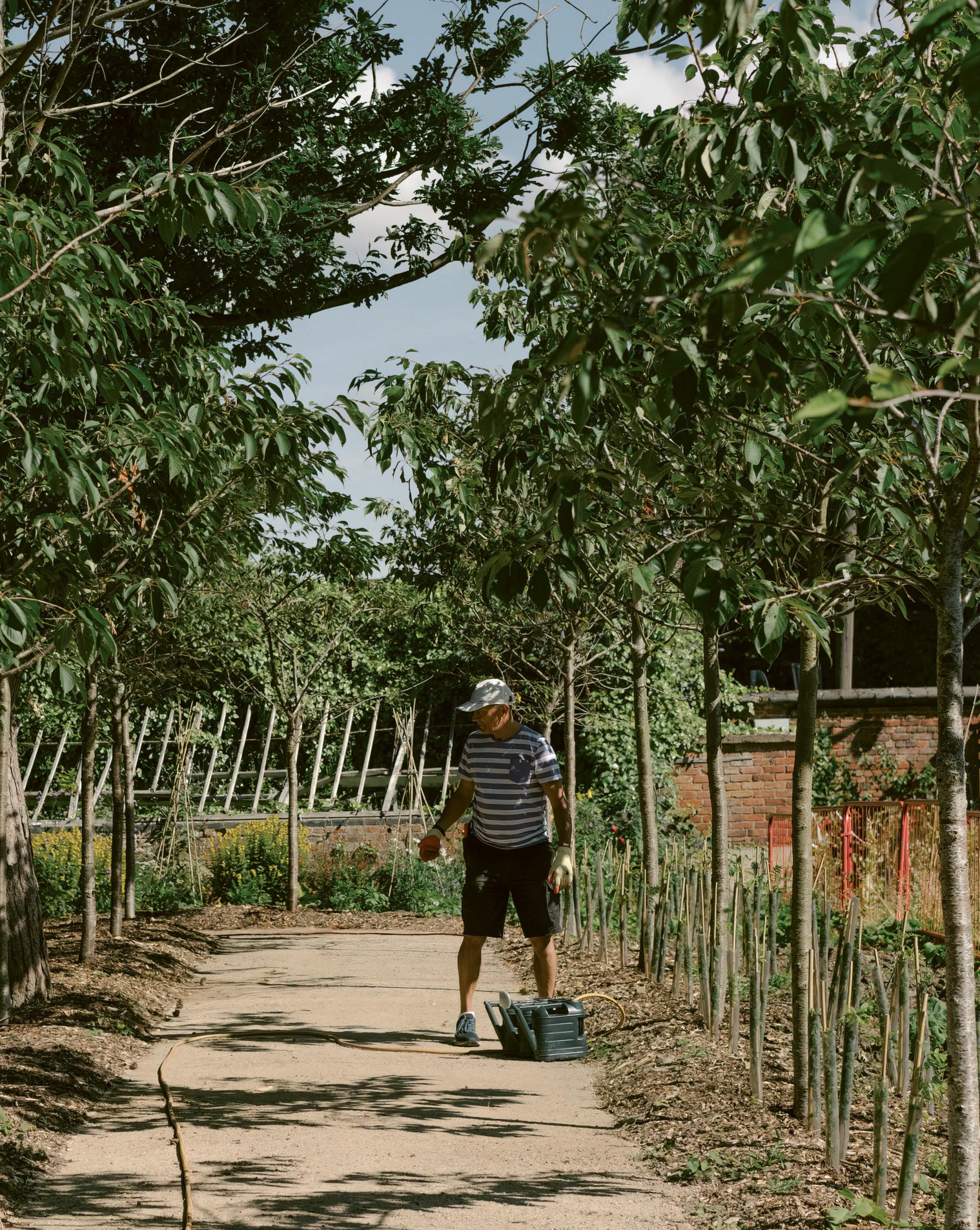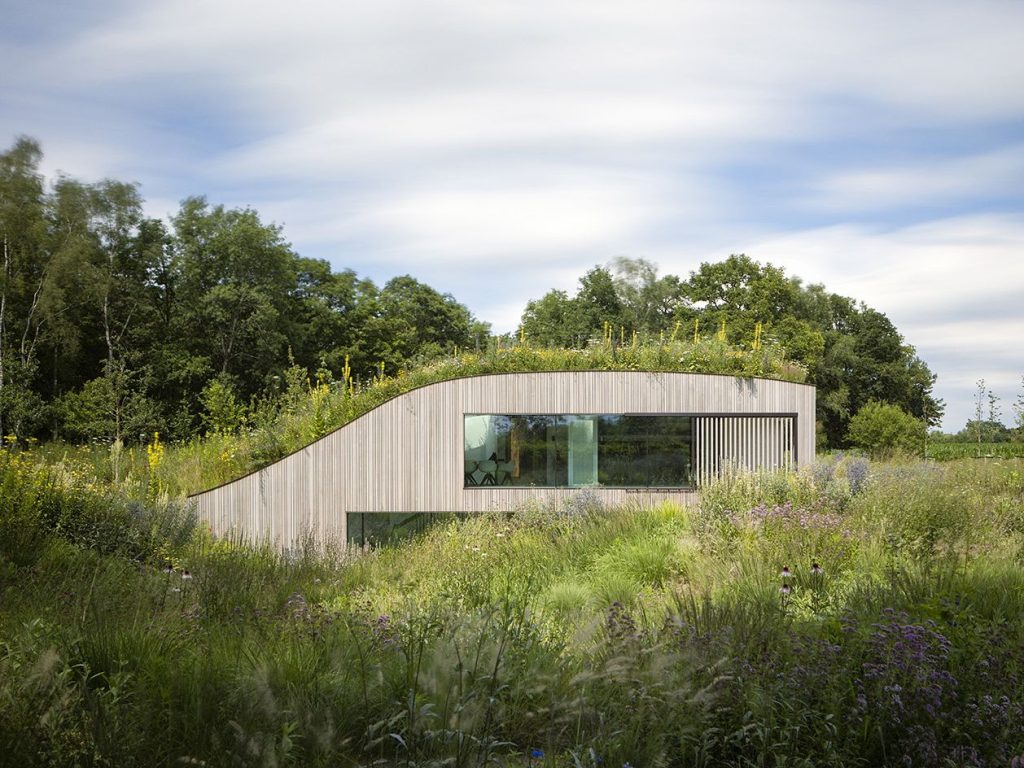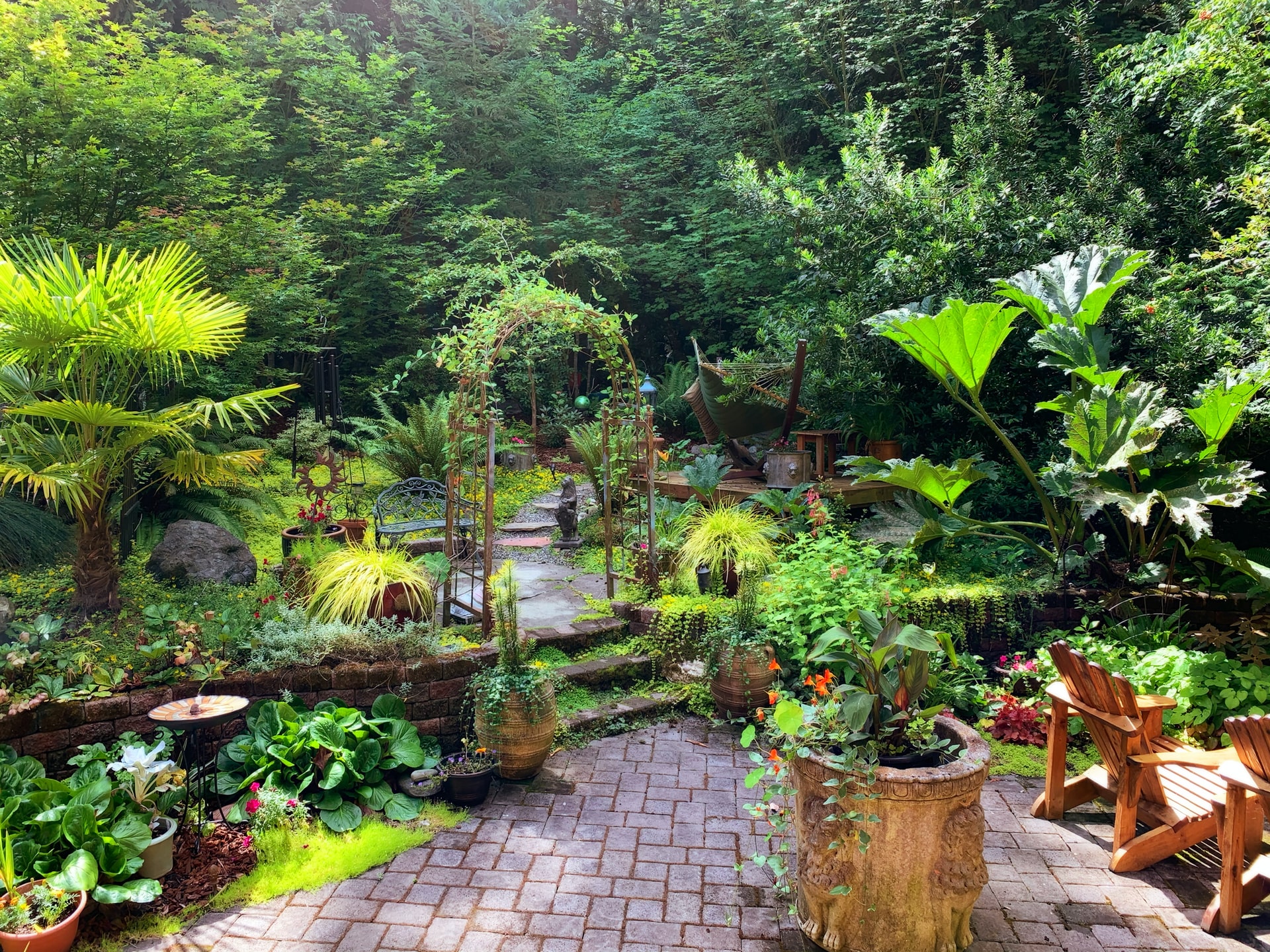Gardening as Art Cultivating Green Spaces for Creativity Well-Being

Discovering the Artistic Side of Gardening
In an age where technology dominates, the simple art of gardening offers a refreshing escape into nature. Gardening transcends mere cultivation; it becomes a canvas for self-expression and a sanctuary for mental peace. As people increasingly seek creative hobbies to enrich their lives, planting and nurturing a garden has proven to inspire both creativity and well-being.
Engaging with nature not only allows for aesthetic creativity but also fosters emotional health. Research shows that gardening can reduce stress, enhance mood, and stimulate innovative thinking. With its therapeutic benefits and artistic potential, gardening is fast becoming a favored activity for those looking to blend leisure with self-discovery.
In this article, we will explore the Top 5 ways gardening can inspire creativity and promote well-being, providing insights into how cultivating a green space can transform your life. Prepare to uncover the art behind digging, planting, and nurturing, as we delve into the rich world of gardening.
EXPLORE MORE: Click here to dive into the art of world-building
Top 5: Gardening as Art – How Cultivating a Green Space Can Inspire Creativity and Well-Being
Gardening is not merely a hobby; it is a profound art form that intertwines the beauty of nature, the depths of creativity, and the essence of well-being. By engaging in gardening, individuals are afforded the opportunity to connect intimately with nature, unlock their creative potential, and enhance their overall mental health. In this article, we explore five compelling aspects of gardening that highlight both its artistic value and therapeutic benefits. Each point demonstrates how tending to a green space can inspire creativity while also providing emotional and mental stability.

5. Connection to Nature
At its core, gardening fosters a powerful connection to nature. In a world increasingly dominated by urban landscapes, many people find themselves detached from the natural environment that once surrounded them. Cultivating a garden serves as a bridge to the earth, offering insight into the cycles of growth, decay, and renewal. This reconnection is profound; observing these natural processes firsthand has been shown to evoke feelings of awe and tranquility.
Such experiences can significantly enhance creativity. Picture a gardener planting a seed, nurturing it with the necessary elements, and witnessing its transformation into a blooming spectacle. This is not just a mere process but a natural artistic journey that can ignite creativity and inspiration. As the rhythms of nature unfold in the garden, so too do the latent ideas within those who tend to it, allowing them to draw inspiration not only from the living art before them but from within themselves.
4. The Therapeutic Effects of Gardening
The therapeutic effects of gardening are well-documented and deeply impactful on mental health and emotional well-being. Numerous studies have highlighted how spending time in green spaces can reduce stress, alleviate anxiety, and promote a general sense of relaxation. In an era where fast-paced lifestyles are the norm, gardening offers a sanctuary of peace and introspection.
Engaging in gardening activities like planting, watering, and pruning can serve as a form of meditation—an opportunity to clear one’s mind and focus on the present moment. The rhythmic and tactile nature of these tasks creates a calming environment, effectively facilitating relaxation and mental clarity. When the mind is calm and uncluttered, creativity can flourish. Research indicates that regular gardeners report higher levels of happiness and contentment, making gardening a valuable outlet for emotional expression and creative exploration.
3. A Canvas for Creativity
Gardening offers an abundant canvas for creativity. Unlike traditional canvases, which are two-dimensional, a garden is an ever-evolving three-dimensional art piece that grows and changes over time. Each gardening space can be meticulously designed and tailored to reflect an individual’s personal taste and artistic vision. Whether one opts for vibrant flowers, intricate layouts, or a diverse mix of plant combinations, the possibilities are virtually limitless.
Such creative freedom allows gardeners to express themselves in visually appealing and personally significant ways. A garden can act as a direct reflection of a gardener’s emotional landscape, transforming a mundane outdoor area into a captivating art installation. Moreover, experimenting with various plants, colors, and arrangements encourages innovative thinking. This experimentation often translates into other creative outlets, manifesting as new ideas, concepts, and projects beyond the garden walls.
2. Boosting Productivity and Focus
Beyond its aesthetic appeal, gardening has the potential to boost productivity and focus. Today, many find that enclosed spaces and constant digital distractions stifle their creativity. Immersing oneself in the act of gardening provides a refreshing break from this routine, allowing the mind to reset and recharge.
Studies have suggested that spending time in the garden can significantly improve attention span and concentration—a remedy for mental fatigue. As cognitive pressure is alleviated, creativity often thrives, enabling ideas and inspiration to flow more freely. A dedicated space for gardening, whether it be a small balcony or an expansive yard, serves as a retreat where focus and creativity can harmoniously coexist and flourish.
1. Cultivating Community and Sharing Knowledge
Arguably the most impactful aspect of gardening as an art form is its ability to cultivate community and share knowledge. While gardening is often thought of as a solitary pursuit, it has the remarkable capacity to bring people together. Community gardening initiatives abound, creating opportunities for individuals to share skills, tips, and experiences with like-minded others.
This exchange of knowledge not only bolsters gardening skills but also fortifies social bonds. Collaborating on gardening projects can spark shared creativity and mutual support, enriching the entire experience. For many, plants become a universal language that unites diverse groups of people, fostering a sense of belonging and collective growth. Thus, gardening transcends its role as a hobby, morphing into a profound cultural and social exchange.
In conclusion, “Gardening as Art” is much more than the act of tending to plants. It unlocks pathways for personal expression, mental well-being, and community engagement. Whether one is building a personal sanctuary or participating in a communal effort, the artistic nature of gardening is undeniably enriching. Embrace the garden today to discover the myriad ways it can inspire your creativity and contribute to your well-being, beckoning you to delve deeper into its multifaceted world.
| Category | Description |
|---|---|
| Creative Expression | Cultivating a garden allows individuals to express their creativity through design choices, plant selections, and aesthetic arrangements. |
| Therapeutic Benefits | Gardening promotes mindfulness, reduces stress levels, and offers a sense of tranquility, effectively enhancing overall mental health. |
| Connection to Nature | Engaging in gardening fosters a deeper connection to the environment, encouraging appreciation for natural ecosystems and biodiversity. |
| Community Building | Gardening can bring individuals together, fostering community spirit through shared gardens, gardening clubs, and local green initiatives. |
Additionally, the act of gardening serves to inspire creativity in countless ways. For instance, gardeners often experiment with various plant combinations, colors, and layouts, allowing their personal style to emerge in every corner of their plot. This aspect of gardening can foster a profound sense of accomplishment. Studies have even shown that engaging in creative endeavors such as gardening can lead to increased levels of happiness and life satisfaction.The therapeutic benefits of a garden extend beyond mere aesthetics. As individuals dig their hands into the soil and observe the growth of their plants, they often find a unique form of meditation. The simple act of watering flowers or pruning leaves can balance the stresses of modern life, promoting a refreshing mental clarity that many seek. Research indicates that spending time in green spaces can significantly lower cortisol levels, the body’s primary stress hormone.Moreover, cultivating a green space also encourages a deeper connection to nature. This relationship is not just about appreciating the beauty of plants but understanding their roles in the ecosystem. For example, native plants can attract local wildlife, fostering biodiversity while enhancing the beauty of the garden. This ecological awareness can lead to a more sustainable lifestyle as gardeners become advocates for environmental preservation.Finally, gardening has the potential to build community and strengthen social ties. Community gardens, for instance, create spaces where neighbors can not only grow fresh produce but also share knowledge and resources. These collaborative efforts can lead to lifelong friendships and create bonds that contribute to an overall sense of belonging. Thus, understanding the multifaceted advantages of gardening may inspire more individuals to see it not just as a pastime, but as a powerful tool for enhancing their well-being and creativity.
DISCOVER MORE: Click here to enhance your drawing skills
Frequently Asked Questions about Gardening as Art
How can gardening influence creativity?
Gardening can be a profound source of inspiration due to its dynamic nature and the endless possibilities it provides. Engaging with plants allows gardeners to experiment with color combinations, textures, and layouts, much like a painter with a canvas. The process of nurturing plants from seeds to full growth encourages innovative thinking and problem-solving skills, fostering a creative mindset akin to artistic endeavors.
In what ways does a green space contribute to well-being?
Cultivating a green space is known to have significant psychological benefits. Interacting with nature reduces stress levels and increases feelings of calm and relaxation, which is crucial for mental health. A well-maintained garden can serve as a personal refuge, offering a peaceful escape from the hustle and bustle of daily life. Furthermore, the act of tending to plants has been associated with enhanced mindfulness and satisfaction, contributing positively to one’s overall well-being.
What are some easy-to-care-for plants for beginners?
For those new to gardening, starting with low-maintenance plants can make the initial experience rewarding and less daunting. Some beginner-friendly plants include succulents, which require minimal water and care, and herbs like basil or mint, which thrive with basic attention and offer practical uses in cooking. Additionally, plants such as pothos and spider plants are resilient and can adapt to various indoor conditions, making them ideal for novice gardeners.
How can someone without a garden start incorporating plants into their home?
Even without an outdoor garden, individuals can create greener living spaces by utilizing available indoor areas. Vertical gardening solutions, such as wall-mounted planters or hanging pots, maximize space usage. Houseplants like peace lilies, ferns, and snake plants adapt well to indoor environments and promote air purification. Moreover, window sills and balconies can be transformed into mini-gardens for those eager to enjoy the greenery in compact settings.
DISCOVER MORE: Click here to enhance your illustration skills
Conclusion
In summary, harnessing the creative potential of gardening is a journey that merges artistic expression with nature’s bounty. Throughout the article, we explored various ways in which cultivating a green space can serve as a powerful source of inspiration, promoting both creativity and well-being.
First, it was evident that the creative processes involved in designing and maintaining a garden parallel those found in traditional forms of art. Just as a painter selects colors and textures, a gardener chooses plants and structures to create a harmonious natural display. This process not only fuels creativity but also offers a canvas for personal expression.
Furthermore, the connection between gardens and mental health was highlighted. The act of gardening has therapeutic benefits, reducing stress and promoting mindfulness. The physical interaction with plants and soil has been shown to boost mood and mental clarity, offering a serene escape from the fast-paced demands of modern life.
Gardening also fosters a deeper connection with the environment. As gardeners observe seasonal changes and adapt their plans accordingly, they develop a sustainable mindset and a respect for natural cycles. This awareness of ecological balance serves as a vital lesson in sustainability and personal accountability.
In conclusion, embracing gardening as an art form is more than a hobby; it’s a transformative experience. By blending artistic vision with ecological stewardship, individuals can nurture their sense of creativity and contribute to their overall well-being. As we delve deeper into this practice, the potential for personal growth and environmental appreciation becomes increasingly evident, inviting us all to explore the endless possibilities of gardening as an art.


